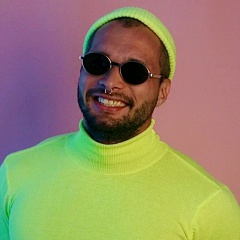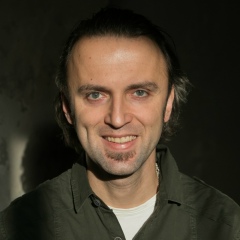Мысль первая.
Ввиду того, что в момент падения советского режима партийные и правительственные дачи СССР перешли в наследство новой власти, что "золото партии" так и не было найдено, что не все архивы были сразу рассекречены, что КПСС так и не было осуждено, очень хочется смотреть на события истории СССР-России 1991-2001 годов именно под таким углом.
Да, внутри руководящей и направляющей партии обанкротившегося к концу 80-х Советского Союза назрело понимание необходимости серьезных преобразований. Но, давно витает мысль, что под предлогом перехода к рыночной экономики и приватизации на самом деле произошло оформление в частную собственность предприятий, возглавляющими их красными директорами. Возможно, к этому стоит добавить "прихватизацию" и партийно-государственного имущества номенклатурой. Ведь у бедных слуг советского народа ничего не было - квартира государственная, машина государственная, дача государственная, а так хочется иметь свое, так хочется валютный счет на Западе.
Ведь если бы руководство страны действительно двигало страну к демократии и свободному рынку, к освобождению от диктатуры и нарушений прав человека, то нужно было бы не только разбираться с партийным имуществом, но и проводить суд над партией, а это означало бы то, что подавляющее большинство людей, составлявших властную, экономическую и руководящую элиту в 90-х годах, не имело бы права быть ей, как члены КПСС. А этого не произошло, они же не могли осудить сами себя, уйти, их держали привилегии и деньги.
Можно ли делать вывод, что падение советского режима не было реальной сменой власти, а лишь внутрипартийным переворотом? В этакой духовной традиции дворцовых переворотов Российской Империи, в традиции партийных переворотов 20 века. Свобода, демократия и рынок - лишь предлоги, чтобы заручиться поддержкой в народе и других странах, в результате же народ, обманутый в ожиданиях, давно не верит ни в то, ни в другое, ни в третье.
В итоге дележки, конечно, образовались обиженные, чьи действия выразились в две попытки государственного переворота в 91 и 93 годах, которые лишь ускорили процесс достижения цели победителями.
Кто встал во главе многочисленных банд рэкетиров и рейдеров в 90-х? Случайные преступники или все те же обиженные коммунисты и дети партийно-комсомольско-номенклатурного аппарата? Во всяком случае выходит, что именно вторые осуществили рейдерский захват всей страны в 98-99 годах - очередной дворцовый переворот - и уже около 15 лет лет занимаются рейдерством в государственном масштабе. Зато "уличный" криминал снижается. Зато теперь властьимущим можно сочетать все "прелести" рынка - держать все имущество в частной собственности и копить счета в заграничных банках и офшорах, и закручивать гайки стиле тоталитаризма, быть условно законным по мировым стандартам монополистом и в экономике и во власти.
Все это, конечно, не более, чем мысли, дилетантская версия.
Ввиду того, что в момент падения советского режима партийные и правительственные дачи СССР перешли в наследство новой власти, что "золото партии" так и не было найдено, что не все архивы были сразу рассекречены, что КПСС так и не было осуждено, очень хочется смотреть на события истории СССР-России 1991-2001 годов именно под таким углом.
Да, внутри руководящей и направляющей партии обанкротившегося к концу 80-х Советского Союза назрело понимание необходимости серьезных преобразований. Но, давно витает мысль, что под предлогом перехода к рыночной экономики и приватизации на самом деле произошло оформление в частную собственность предприятий, возглавляющими их красными директорами. Возможно, к этому стоит добавить "прихватизацию" и партийно-государственного имущества номенклатурой. Ведь у бедных слуг советского народа ничего не было - квартира государственная, машина государственная, дача государственная, а так хочется иметь свое, так хочется валютный счет на Западе.
Ведь если бы руководство страны действительно двигало страну к демократии и свободному рынку, к освобождению от диктатуры и нарушений прав человека, то нужно было бы не только разбираться с партийным имуществом, но и проводить суд над партией, а это означало бы то, что подавляющее большинство людей, составлявших властную, экономическую и руководящую элиту в 90-х годах, не имело бы права быть ей, как члены КПСС. А этого не произошло, они же не могли осудить сами себя, уйти, их держали привилегии и деньги.
Можно ли делать вывод, что падение советского режима не было реальной сменой власти, а лишь внутрипартийным переворотом? В этакой духовной традиции дворцовых переворотов Российской Империи, в традиции партийных переворотов 20 века. Свобода, демократия и рынок - лишь предлоги, чтобы заручиться поддержкой в народе и других странах, в результате же народ, обманутый в ожиданиях, давно не верит ни в то, ни в другое, ни в третье.
В итоге дележки, конечно, образовались обиженные, чьи действия выразились в две попытки государственного переворота в 91 и 93 годах, которые лишь ускорили процесс достижения цели победителями.
Кто встал во главе многочисленных банд рэкетиров и рейдеров в 90-х? Случайные преступники или все те же обиженные коммунисты и дети партийно-комсомольско-номенклатурного аппарата? Во всяком случае выходит, что именно вторые осуществили рейдерский захват всей страны в 98-99 годах - очередной дворцовый переворот - и уже около 15 лет лет занимаются рейдерством в государственном масштабе. Зато "уличный" криминал снижается. Зато теперь властьимущим можно сочетать все "прелести" рынка - держать все имущество в частной собственности и копить счета в заграничных банках и офшорах, и закручивать гайки стиле тоталитаризма, быть условно законным по мировым стандартам монополистом и в экономике и во власти.
Все это, конечно, не более, чем мысли, дилетантская версия.
The first thought.
Due to the fact that at the time of the fall of the Soviet regime, the party and government dachas of the USSR were inherited by the new government, that the “party gold” was never found, that not all archives were immediately declassified, that the CPSU was never condemned, I really want to watch on the events of the history of the USSR-Russia of 1991-2001 precisely from this angle.
Yes, inside the leading and guiding party of the bankrupt Soviet Union by the end of the 80s, an understanding has ripened of the need for serious reforms. But, for a long time, the idea has been hovering that, under the pretext of a transition to a market economy and privatization, in fact, private ownership of enterprises headed by their red directors took place. Perhaps to this should be added the "privatization" of party-state property by nomenclature. After all, the poor servants of the Soviet people had nothing - a state apartment, a state machine, a state dacha, and one wants to have one, one wants a foreign currency account in the West.
After all, if the country's leadership really moved the country towards democracy and a free market, to free itself from dictatorship and human rights violations, then it would be necessary not only to deal with party property, but also to conduct trial of the party, which would mean that the vast majority people who constituted the power, economic and leadership elite in the 90s would not have the right to be it, as members of the CPSU. But this did not happen, they could not blame themselves, leave, they were kept privileges and money.
Is it possible to conclude that the fall of the Soviet regime was not a real change of power, but only an intra-party coup? In a kind of spiritual tradition of the palace coups of the Russian Empire, in the tradition of party coups of the 20th century. Freedom, democracy and the market are just pretexts to enlist the support of the people and other countries, as a result, the people, deceived in expectations, have not believed for a long time in either one or the other or the third.
As a result, the dividends, of course, formed offended, whose actions were expressed in two coup attempts in 91 and 93, which only accelerated the process of achieving the goal by the winners.
Who stood at the head of numerous gangs of racketeers and raiders in the 90s? Random criminals or all the same offended communists and children of the party-Komsomol-nomenclature apparatus? In any case, it turns out that it was the latter who carried out the raider seizure of the whole country in 98-99 - the next palace coup - and for about 15 years they have been engaged in raiding on a state scale. But the "street" crime is reduced. But now it is possible for those in power to combine all the "charms" of the market - to keep all property in private ownership and save accounts in foreign banks and offshore, and tighten the totalitarian style, be conditionally legal monopolist in economics and power by international standards.
All this, of course, is nothing more than thoughts, an amateurish version.
Due to the fact that at the time of the fall of the Soviet regime, the party and government dachas of the USSR were inherited by the new government, that the “party gold” was never found, that not all archives were immediately declassified, that the CPSU was never condemned, I really want to watch on the events of the history of the USSR-Russia of 1991-2001 precisely from this angle.
Yes, inside the leading and guiding party of the bankrupt Soviet Union by the end of the 80s, an understanding has ripened of the need for serious reforms. But, for a long time, the idea has been hovering that, under the pretext of a transition to a market economy and privatization, in fact, private ownership of enterprises headed by their red directors took place. Perhaps to this should be added the "privatization" of party-state property by nomenclature. After all, the poor servants of the Soviet people had nothing - a state apartment, a state machine, a state dacha, and one wants to have one, one wants a foreign currency account in the West.
After all, if the country's leadership really moved the country towards democracy and a free market, to free itself from dictatorship and human rights violations, then it would be necessary not only to deal with party property, but also to conduct trial of the party, which would mean that the vast majority people who constituted the power, economic and leadership elite in the 90s would not have the right to be it, as members of the CPSU. But this did not happen, they could not blame themselves, leave, they were kept privileges and money.
Is it possible to conclude that the fall of the Soviet regime was not a real change of power, but only an intra-party coup? In a kind of spiritual tradition of the palace coups of the Russian Empire, in the tradition of party coups of the 20th century. Freedom, democracy and the market are just pretexts to enlist the support of the people and other countries, as a result, the people, deceived in expectations, have not believed for a long time in either one or the other or the third.
As a result, the dividends, of course, formed offended, whose actions were expressed in two coup attempts in 91 and 93, which only accelerated the process of achieving the goal by the winners.
Who stood at the head of numerous gangs of racketeers and raiders in the 90s? Random criminals or all the same offended communists and children of the party-Komsomol-nomenclature apparatus? In any case, it turns out that it was the latter who carried out the raider seizure of the whole country in 98-99 - the next palace coup - and for about 15 years they have been engaged in raiding on a state scale. But the "street" crime is reduced. But now it is possible for those in power to combine all the "charms" of the market - to keep all property in private ownership and save accounts in foreign banks and offshore, and tighten the totalitarian style, be conditionally legal monopolist in economics and power by international standards.
All this, of course, is nothing more than thoughts, an amateurish version.
У записи 2 лайков,
0 репостов.
0 репостов.
Эту запись оставил(а) на своей стене Nikita Lovyagin






















![Олег Яковлев [ведущий] Олег Яковлев [ведущий]](https://sun9-51.vkuserphoto.ru/s/v1/ig1/AeDXSOOHI4vVn2yceds1BO9Ur99Yn-1AmUX8_8iPPHzTWH2c9wRsg-og3Xz4Bvh4WfngNz-m.jpg?quality=96&crop=64,90,463,463&as=32x32,48x48,72x72,108x108,160x160,240x240,360x360&ava=1&cs=200x200)